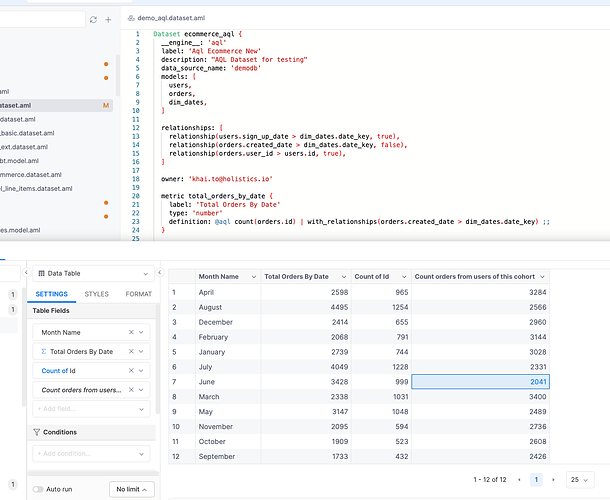Yes, I’m been waiting to share the progress on this, but the documentation is not there yet.
But I can tell you that we have a way to support these scenarios in the new AQL engine for 4.0.
The gist of the unreleased documentation is that we will support the new with_relationships function that allows you to choose the relationships at the metric/expression level. Here is an example of it in action:
Dataset ecommerce_aql {
__engine__: 'aql'
data_source_name: 'demodb'
models: [
users,
orders,
dim_dates,
]
relationships: [
relationship(users.sign_up_date > dim_dates.date_key, true),
relationship(orders.created_date > dim_dates.date_key, false),
// This is enabled by default, which means by default orders are retrieved
// through users
relationship(orders.user_id > users.id, true),
]
owner: '[email protected]'
metric total_orders_by_date {
description: '''
This metric counts the number of orders created in a period.
If you want the orders created by users, please use the default count(orders.id)
'''
label: 'Total Orders By Date'
type: 'number'
definition: @aql count(orders.id) | with_relationships(orders.created_date > dim_dates.date_key) ;;
}
}
